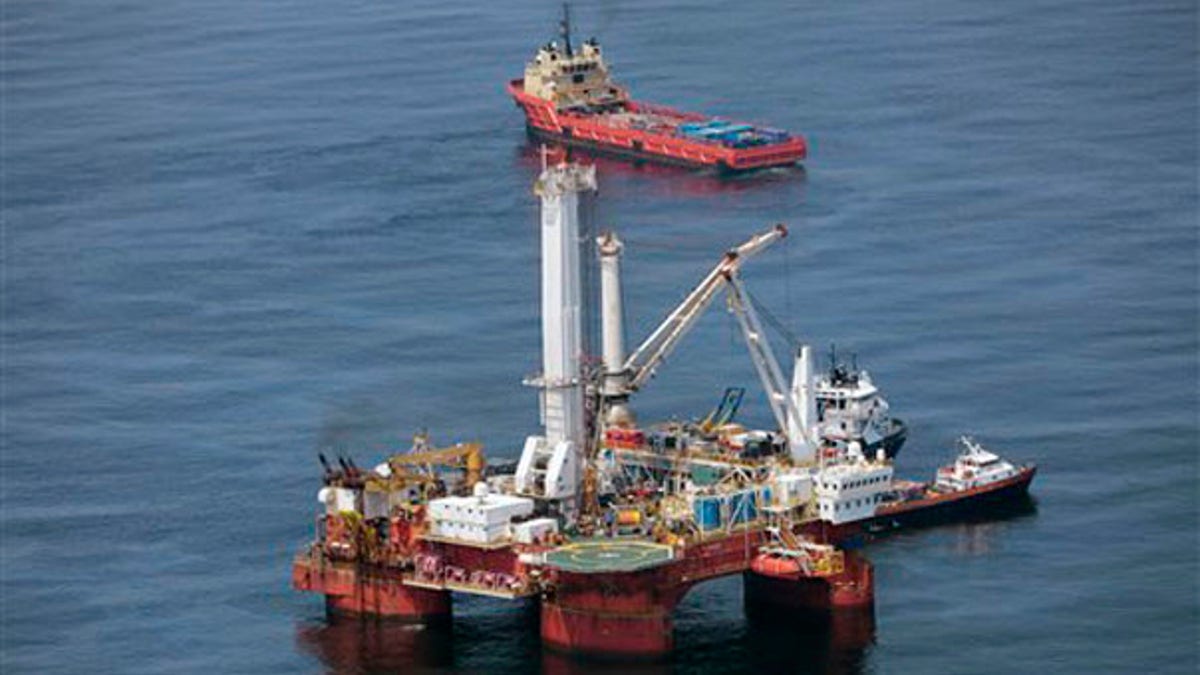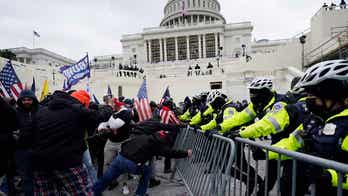
A deepwater drilling rig operates near the site of the Deepwater Horizon disaster in the Gulf of Mexico June 8. (AP Photo)
White House energy adviser Carol Browner on Friday rejected accusations from a panel of experts who claim the administration misrepresented their views to justify a six-month ban on offshore drilling in response to the BP oil rig disaster.
The denial came after the experts alleged that the Interior Department modified a report in late May that was used as the basis for the sweeping moratorium on existing drilling and new permits.
Though the report claimed the analysts, picked by the National Academy of Engineering, "peer reviewed" the department's recommendations, the experts say the two paragraphs that called for the moratorium were added only after they signed off on it.
To the contrary, the experts warn that such a moratorium could not only harm the economy but make the situation in the Gulf more dangerous. The April 20 oil rig explosion occurred while the Deepwater Horizon well was being shut down -- a move that is much more dangerous than continuing ongoing drilling, they said.
"A blanket moratorium is not the answer," they wrote in a letter claiming Interior Department Secretary Ken Salazar's report "misrepresents" their position. "A blanket moratorium will have the indirect effect of harming thousands of workers and further impact state and local economies suffering from the spill."
That's exactly the argument that Gulf Coast lawmakers and the families of oil rig workers have been making as they fight the administration's moratorium decision.
"We do not believe that punishing the innocent is the right thing to do. We encourage the secretary of interior to overcome emotion with logic," the experts wrote.
But while Salazar has acknowledged that the moratorium was his decision, not theirs, Browner argued that the administration did nothing wrong.
"No one's been deceived or misrepresented," Browner told Fox News, defending the moratorium as a safety measure. "These experts gave their expert advice, and then a determination was made looking at all of the information, including what these experts provided -- that there should be a pause, and that's exactly what there is. There's a pause."
The experts claimed the draft report that they looked at called for a six-month freeze on permits for new exploratory wells 1,000 feet or deeper and a "temporary pause" on current drilling.
Somehow, that was changed to call for a six-month moratorium on permits for new wells being drilled using floating rigs and an "immediate halt" to drilling operations on 33 permitted wells.
"None of us actually reviewed the memorandum as it is in the report," oil expert Ken Arnold told Fox News. "What was in the report at the time it was reviewed was quite a bit different in its impact to what there is now. So we wanted to distance ourselves from that recommendation."
The experts also faxed a memo to Louisiana Gov. Bobby Jindal and Louisiana Sens. Mary Landrieu and David Vitter to clarify that they do not believe the report justifies the moratorium.
They also said that because the floating rigs are scarce and in high demand worldwide, they will not simply sit in the Gulf idle for six months. The rigs will go to the North Sea and West Africa, possibly preventing the U.S. from being able to resume drilling for years.
They said the best and most advanced rigs will be the first to go, leaving the U.S. with the older and potentially less safe rights operating in the nation's coastal waters.
Fox News' William LaJeunesse contributed to this report.




